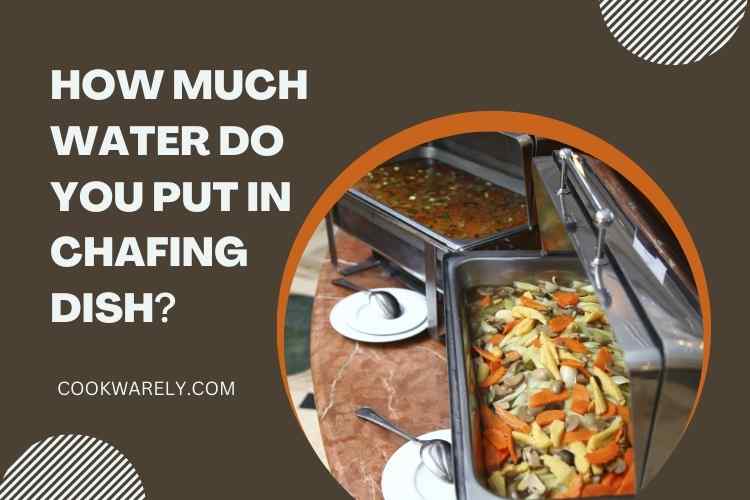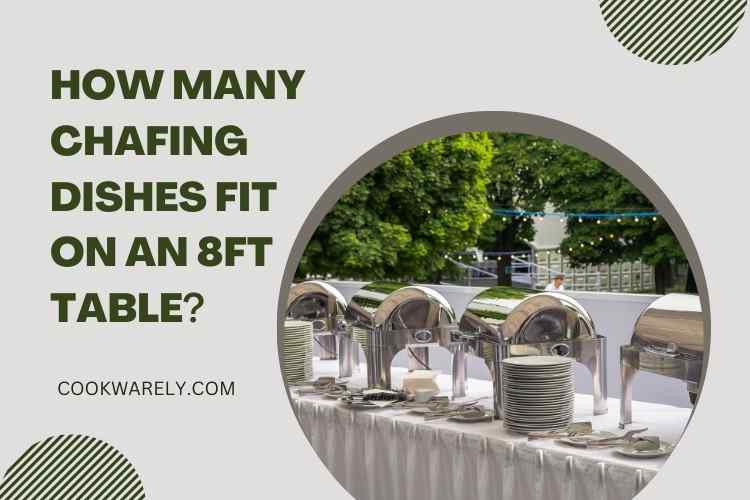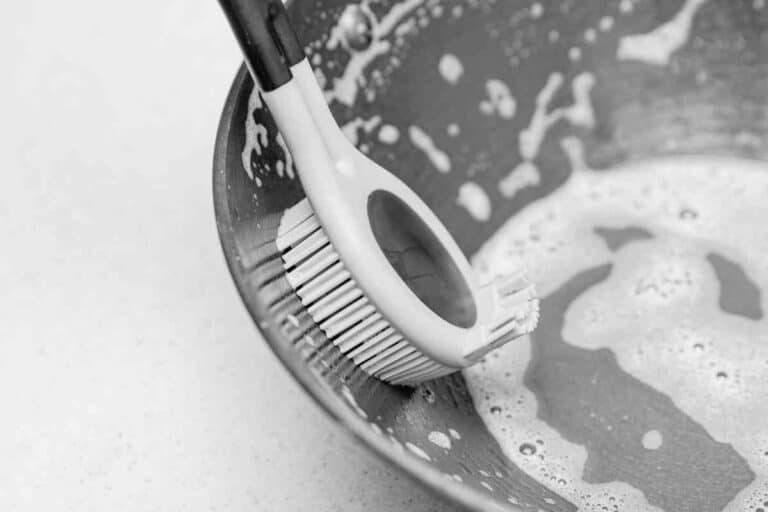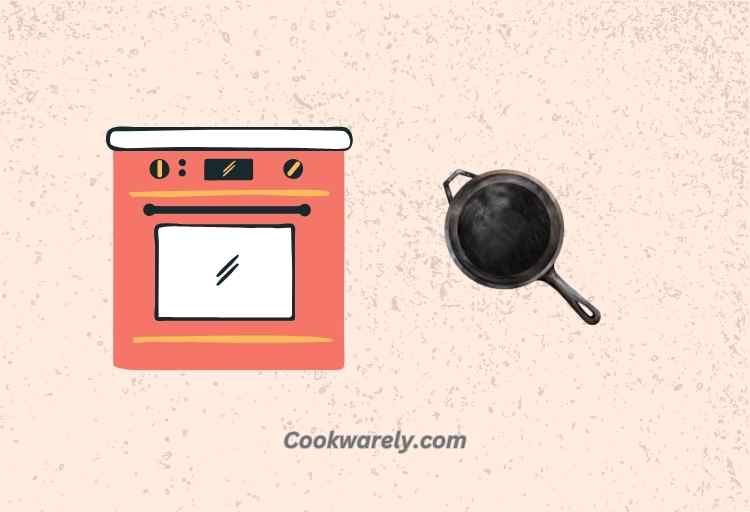Does Stainless Steel Work On Induction Cooktops?
Does stainless steel work on induction cooktops: Yes, stainless steel cookware can work on induction cooktops, provided it has a magnetic base. The compatibility is determined by the cookware’s magnetic properties, making the magnet test a reliable method for verification.
When using when using stainless steel cookware on induction cooktops:
- Thickness Matters: Opt for thicker stainless steel cookware, as it ensures better heat distribution and reduces the risk of warping during cooking.
- Preheat Wisely: Begin cooking on medium heat and adjust as needed. Avoid high heat settings unless necessary to prevent overheating and sticking.
- Proper Cleaning: Promptly clean your stainless steel cookware after each use to maintain its appearance and performance. Use gentle scrubbers to avoid surface scratches.
6 Aspects When Using Stainless Steel Cookware on Induction Cooktops
| Aspect to Consider | Description |
|---|---|
| Magnetic Bottom | Ensure your stainless steel cookware has a magnetic bottom for compatibility with induction. |
| Thickness | Thicker cookware tends to perform better on induction, offering even heating and reduced warping risk. |
| Preheating | Start cooking on medium heat and adjust as needed to avoid overheating and sticking. |
| Lubrication | Use adequate oil or butter to prevent food from sticking, as stainless steel is not nonstick. |
| Temperature Changes | Avoid rapid temperature changes, such as plunging hot cookware into cold water, to prevent warping. |
| Cleaning | Clean stainless steel cookware promptly after use with non-abrasive scrubbers to maintain appearance and performance. |
Key Takeaways
- Stainless steel cookware can work on induction cooktops if it has a magnetic base. Use the magnet test to check for compatibility.
- Stainless steel offers even heat distribution, preventing hot spots and ensuring uniform cooking.
- Start cooking on medium heat and adjust as needed to avoid overheating and sticking.
- Proper cleaning and maintenance are crucial to preserving the appearance and performance of stainless steel cookware on induction cooktops. Use non-abrasive scrubbers for cleaning.
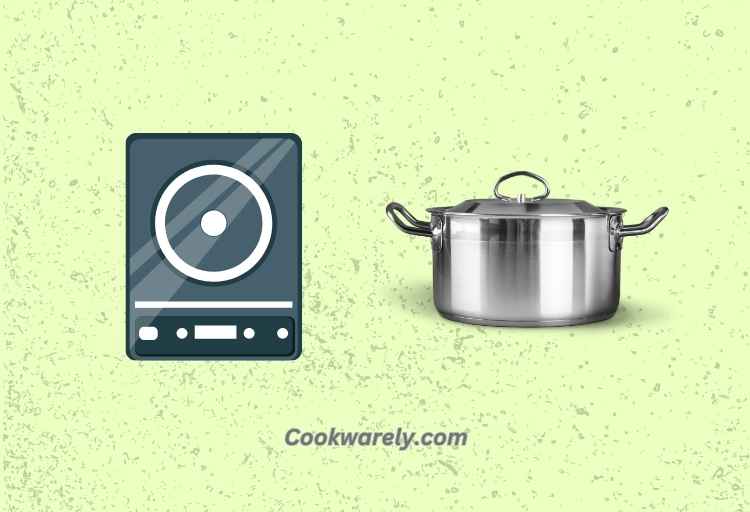
Five Facts About Using Stainless Steel Cookware on Induction Cooktops
- Stainless steel cookware must have a magnetic base to work on induction cooktops. The magnet test can verify its compatibility.
- Stainless steel distributes heat evenly, reducing the risk of hot spots and ensuring uniform cooking.
- Begin cooking on medium heat and adjust as needed to avoid overheating and food sticking to the pan.
- Use sufficient oil or butter to prevent sticking, as stainless steel is not nonstick.
- Promptly clean stainless steel cookware after each use with non-abrasive scrubbers to maintain both its appearance and performance on induction cooktops.
Understanding Induction Cooking
Before we dive into the specifics of stainless steel cookware, let’s grasp the basics of induction cooking. Unlike traditional gas or electric stoves, induction cooktops use electromagnetic fields to directly heat the cookware. This process offers several advantages:
- Quick Boiling: Induction cooktops harness the power of magnets to heat your cookware. This means that your water will boil faster than you can say “dinner’s ready.”
- Cool to the Touch: One of the most impressive features of induction cooktops is that they remain cool to the touch. Only the cookware gets hot, reducing the risk of accidental burns.
- Precise Control: Induction provides precise temperature control, making it ideal for delicate tasks like melting chocolate or simmering sauces.
The Role of Cookware in Induction Cooking
The magic of induction cooking lies in the interaction between the cooktop and your pots and pans. To make this happen, your cookware needs to have a magnetic bottom surface. Induction cooktops generate an alternating magnetic field, and only magnetic materials respond to this, converting it into heat. This is where stainless steel comes into play.
Stainless Steel Cookware
Stainless steel cookware is a popular choice for many home cooks. It’s durable, resistant to rust and staining, and easy to clean. However, not all stainless steel is created equal. Some stainless steel is not magnetic, and that’s where the important distinction lies.
The Magnet Test
Now, let’s address the burning question: Is your stainless steel cookware compatible with induction? You can easily find out using the magnet test:
Step 1: Grab a common refrigerator magnet.
Step 2: Turn your pot or pan upside down and place the magnet on the bottom.
Step 3: If the magnet sticks firmly to the bottom, your stainless steel cookware is induction-friendly. If it doesn’t, your cookware might not be suitable for use on an induction cooktop.
This test is simple yet incredibly effective. If your stainless steel cookware passes, you can confidently use it on your induction cooktop.
Other Compatible Cookware Materials
While stainless steel is a popular choice, it’s not the only material that works with induction cooktops. Here are a few other options:
- Cast Iron: Cast iron pans are known for their compatibility with induction. They usually have a magnetic base and distribute heat evenly, making them ideal for this type of cooking.
- Magnetic Bottom Cookware: Some cookware is explicitly designed with a magnetic bottom to ensure compatibility with induction. Look for labels or product descriptions that mention “induction-ready.”
- Nonstick Cookware: Surprisingly, even some nonstick pans can work with induction if they have a metal base. So, don’t rule out your nonstick favorites – just make sure they pass the magnet test.
Benefits of Using Stainless Steel on Induction Cooktops
Now that you know stainless steel can work on induction cooktops, let’s explore the benefits of using this material for your cooking adventures:
- Durability: Stainless steel cookware is built to last. It can withstand high heat and is resistant to scratches, stains, and corrosion.
- Even Heating: Stainless steel offers even heat distribution, preventing hot spots and ensuring your food cooks uniformly.
- Easy Maintenance: Cleaning stainless steel is a breeze. Most stains and burnt-on residues can be easily removed with a gentle scrub.
- Versatility: Stainless steel cookware is incredibly versatile and suitable for various cooking techniques, from searing to sautéing and boiling.
- Sleek Appearance: Stainless steel cookware looks sleek and modern, adding a touch of elegance to your kitchen.
Considerations and Tips
While stainless steel is an excellent choice for induction cooking, here are a few considerations and tips to keep in mind:
- Thickness Matters: Thicker stainless steel cookware tends to perform better on induction cooktops. It helps maintain even heating and reduces the risk of warping.
- Preheat Wisely: Preheat your stainless steel cookware on medium heat, and then adjust as needed. Avoid using high heat settings unless required.
- Use Adequate Oil: When cooking, use enough oil or butter to prevent sticking. Stainless steel is not nonstick, so a little extra lubrication can go a long way.
- Avoid Rapid Temperature Changes: Avoid drastic temperature changes, such as placing a hot pan in cold water, as this can cause warping.
- Proper Cleaning: Clean your stainless steel cookware promptly after each use to maintain its appearance and performance. Avoid abrasive scrubbers that can scratch the surface.
Conclusion
In conclusion, stainless steel is indeed compatible with induction cooktops, making it a versatile and durable choice for your kitchen. By performing the simple magnet test, you can ensure that your stainless steel cookware is induction-ready.
With its even heating and easy maintenance, stainless steel can elevate your cooking experience on an induction cooktop.
So, next time you’re in the kitchen, feel confident in using your stainless steel pots and pans on your induction cooktop. Enjoy the benefits of precise cooking control and quick, efficient heat – all with the classic charm of stainless steel.

